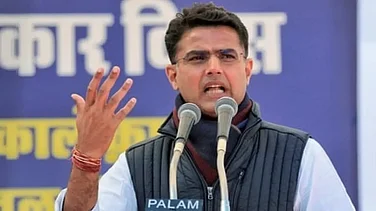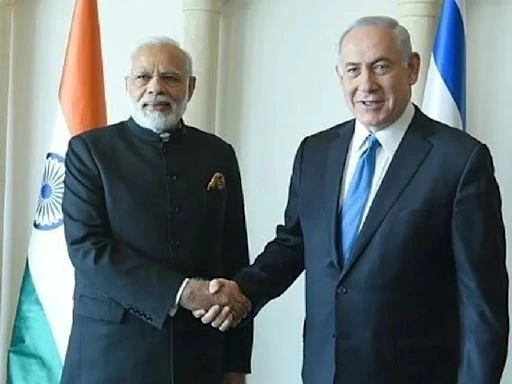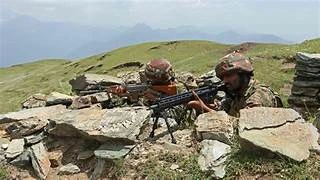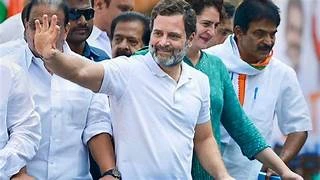10-Apr-2025,05:30 PM In a strong political statement that has stirred fresh discussions around international legal cooperation and national sovereignty, Congress leader Prithviraj Chauhan has called for a fair and transparent trial for Tahawwur Rana under Indian judicial procedures before his extradition from the United States. The former Maharashtra Chief Minister emphasized the importance of following Indian legal norms and ensuring that the 26/11 Mumbai attacks accused is held accountable through an impartial trial system, reinforcing India’s stance on justice.
This move comes amid growing pressure on both Indian and U.S. authorities to fast-track Rana’s extradition process. Prithviraj Chauhan’s demand resonates with the broader narrative that justice must not only be done but be seen to be done — and that includes respecting due process under Indian law.
Prithviraj Chauhan : Who Is Tahawwur Rana and Why Is His Extradition Important?
A Key Accused in the 26/11 Mumbai Terror Attacks
Tahawwur Rana, a Pakistani-origin Canadian businessman, has been accused of assisting David Headley, a key planner of the 2008 Mumbai terror attacks that left over 170 people dead and hundreds injured. Headley, who was captured and turned approver in the U.S., implicated Rana in facilitating reconnaissance missions and logistical support.
India has sought Tahawwur Rana’s extradition to bring him to trial on its soil. While the U.S. Justice Department has already approved the extradition, legal hurdles and delays have stalled the process, sparking frustration among the victims’ families and Indian authorities.
Prithviraj Chauhan Calls for Due Process
Prithviraj Chauhan has stressed that while India’s pursuit of justice in the 26/11 case must remain uncompromised, it is equally important to uphold the dignity and transparency of the legal process. Speaking at a press event in Mumbai, the Congress veteran said, “India’s image as a global democracy is built on its commitment to justice, fairness, and rule of law. Tahawwur Rana must face trial, but under Indian laws and with full transparency.”
Chauhan’s statement adds a nuanced dimension to the current narrative — that justice, though urgent, must not be reduced to mere retribution but should be achieved through constitutional and judicial procedures.
Prithviraj Chauhan :Political Reactions and Legal Ramifications
Prithviraj Chauhan’s comments have sparked responses from across the political spectrum. Several Congress leaders have backed his stance, stating that India should not compromise on legal integrity in high-profile international cases. They argue that hasty extradition without a fair trial framework could set a bad precedent.
On the other hand, some political observers have questioned whether such demands may cause unnecessary delays, particularly when there is strong evidence against Rana, as documented by U.S. prosecutors.
India’s Extradition Agreement with the U.S. – A Complex Legal Landscape
India and the U.S. have a bilateral extradition treaty signed in 1997, but the application of this treaty is subject to legal reviews and approvals from U.S. courts. The extradition of Tahawwur Rana has been delayed as his legal team contests the decision in U.S. courts, arguing that he might not receive a fair trial in India.
While the Indian government has presented strong evidence and diplomatic pressure, the process must still satisfy both legal and human rights criteria as per American law. Prithviraj Chauhan’s insistence on a fair trial under Indian laws aligns with this context — urging that India must also assure a just judicial process.
26/11 – A Wound That Demands Closure
A Case Beyond Politics
The Mumbai attacks are etched in India’s collective memory as one of the deadliest terrorist attacks in modern history. Any delay in justice, especially for high-profile accused like Rana, is seen as a national letdown. Prithviraj Chauhan acknowledged the gravity of the 26/11 tragedy but reminded the nation that India’s strength lies in its legal institutions.
“This is not about political scoring. It’s about reinforcing people’s faith in the legal system,” he said, adding that India’s judiciary is capable of conducting a transparent, evidence-based trial that the world can look up to.
Families of Victims Await Justice
The families of those who lost their lives in the 26/11 attacks have expressed mixed reactions. While some have welcomed Prithviraj Chauhan’s call for a fair trial, others worry that further delays could deny them closure.
Legal experts suggest that balancing due process with timely justice is key. They believe that India must press for speedy extradition while reassuring all stakeholders that Rana will be tried under the strictest standards of Indian jurisprudence.
What’s Next for India’s Legal and Diplomatic Teams?
The ball is now in the U.S. judiciary’s court. Indian authorities have submitted additional documents to strengthen their case, and the Ministry of External Affairs continues to coordinate closely with their U.S. counterparts. Meanwhile, voices like Prithviraj Chauhan’s help steer the conversation toward constitutional propriety.
India has a chance to not just seek retribution, but to uphold a global example of justice served without political bias. Chauhan’s call is as much about safeguarding legal norms as it is about ensuring accountability for one of India’s darkest days.
Conclusion: Prithviraj Chauhan’s Message – Justice with Integrity
In calling for a fair trial for Tahawwur Rana under Indian laws, Prithviraj Chauhan reinforces the Congress party’s focus on legal transparency and human rights. His stance not only aligns with international legal protocols but also underlines India’s confidence in its judiciary.
As the extradition process continues, the world watches closely. India’s next steps must reflect its democratic values and commitment to justice — values that leaders like Prithviraj Chauhan passionately stand for.





